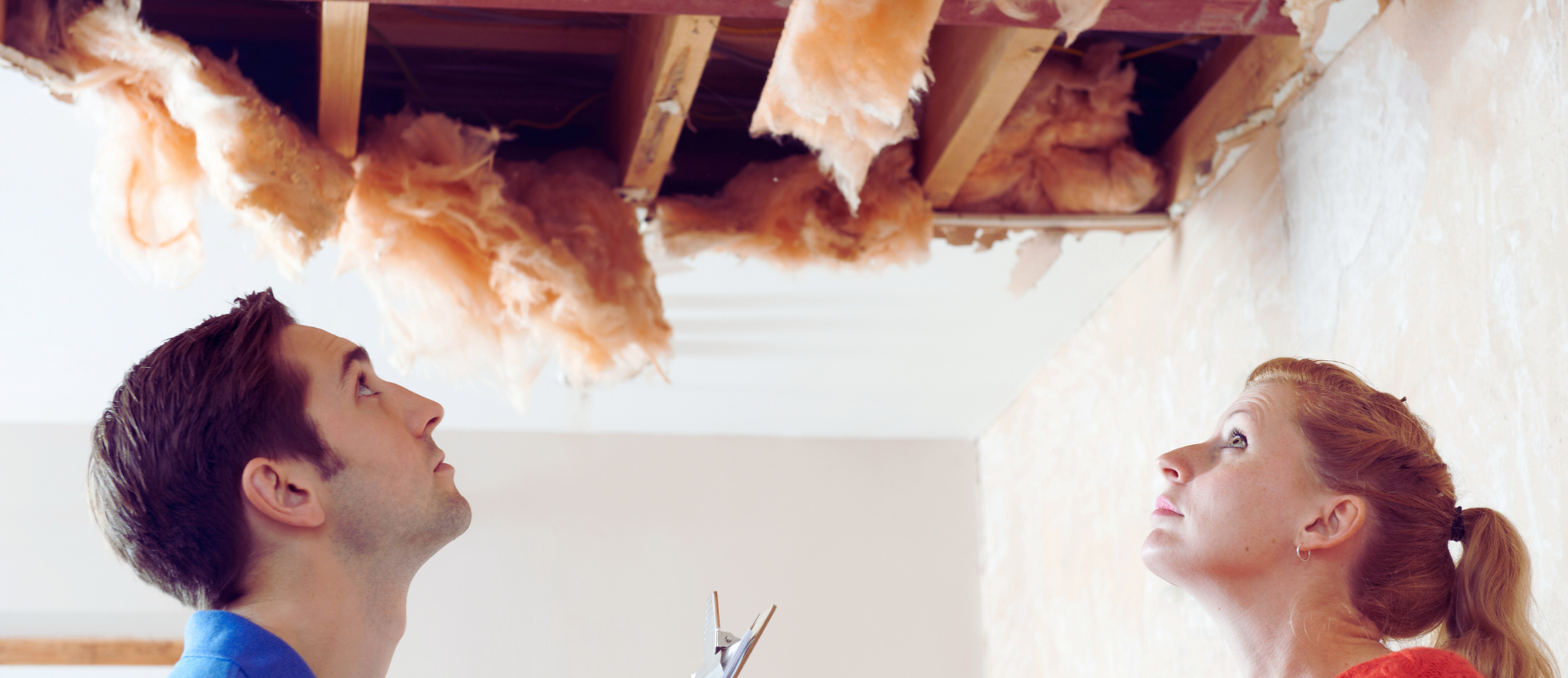
Understanding Tenant Liability For Property Damage In Texas

Landlords in Texas must comprehend tenant accountability for property damage while renting out their properties. This is the responsibility and legal obligation of renters to repair any damage they make to the rented property during their tenure.
In Texas, this liability is governed by state legislation as well as the provisions of the landlord and tenant lease agreement. Landlords must clearly express these responsibilities to their renters before they move in, and specific stipulations about property damage and maintenance should be included in the lease agreement.
Failure to recognize and enforce tenant obligations can lead to financial losses for landlords and legal issues between parties. Landlords may protect their investment properties and provide a positive renting experience by educating themselves on the subject.
Common Causes Of Tenant-related Property Damage In Texas

Landlords in Texas frequently experience property damage caused by tenants. This type of damage can occur for a variety of causes, including accidental mishaps or intentional actions by the renter.
One of the most common causes of property damage by tenants in Texas is negligence or carelessness, which results in broken fixtures and damaged appliances. Another risk could be poor maintenance and a failure to disclose problems early, resulting in substantial damage that could have been avoided.
Additionally, unlawful repairs or adjustments performed by the renter without the landlord’s consent may result in property damage. Landlords must recognize these typical reasons and take the required procedures to minimize potential tenant harm.
Legal Consequences Of Tenant Damage To Property In Texas
When it comes to rental properties in Texas, landlords must be aware of the legal ramifications of tenant property damage. According to Texas law, tenants are accountable for any damage to the rental property caused during their tenure.
This includes both deliberate and inadvertent harm, as well as damage caused by their guests or pets. Landlords can charge renters for repairs or withhold a portion of their security deposit to cover damages.
If the tenant refuses to pay or disputes the charges, landlords might pursue legal action in small claims court. Landlords must understand their rights and duties regarding tenant liability for property damage to preserve their investment and avoid potential legal complications.
How To Determine Responsibility For Tenant-related Property Damage

If you’re an owner in Texas, you need to know that tenants are responsible for damage to your property. If your renters damage your property, you need to know how to figure out who is responsible.
Many times, the renter is responsible if the damage was caused by their carelessness or intentional actions. The owner may be responsible if the damage was caused by normal wear and tear or problems with the building itself.
It is also important for landlords to have thorough lease agreements that make it clear who is responsible for what kinds of damages. Regular inspections and quick attention to any repair issues can also help avoid major damage and disagreements over who is responsible.
In Texas, landlords can protect their investments and maintain good relationships with their tenants by fully understanding the tenant’s responsibility for damage to property.
Steps For Landlords To Take When Tenants Cause Property Damage
Finding out that a renter has damaged their property can be frustrating and stressful for landlords. However, as a Texas landlord, you can take steps to deal with this problem and make the renter pay for the damage they inflicted.
The first step is to take pictures and write down lots of information about the damage. Whatever legal action is taken, this will be very important proof.
Next, you should read the lease carefully to see if it has any policies about damage to property and who is responsible for it. According to these rules, you can act if that’s the case.
Furthermore, you should write to the renter about the damage and ask them to pay for the repairs or replacements. If they don’t/won’t do that, you might have to go to small claims court or hire an attorney to take formal action.
Protecting your belongings and money means taking care of these situations quickly and professionally.
Importance Of Clearly Outlining Tenant Responsibilities In The Lease Agreement

For Texas landlords, it’s important to know how tenants are responsible for damage to the property. Clearing out the tenants’ duties and responsibilities in the lease deal is an important part of this.
This legally binding document spells out the rules and standards for maintaining the property and avoiding damage. By including clear wording and specific clauses about what tenants are responsible for, landlords can protect their investment and avoid future disagreements or misunderstandings.
It is important to word these rules carefully to ensure that renters fully understand their responsibilities and are held responsible for any damage they cause. Additionally, owners may be protected legally if their tenants damage their property and file a lawsuit. A thorough lease agreement can do this.
Consequently, it is important for Texas landlords to include clear instructions in the lease deal on what their tenants are responsible for.
Mitigating Risk: Proactive Measures For Landlords To Prevent Tenant Damage
If you are a landlord in Texas, you should know that your renters could be held responsible for the damage they cause to your property. But landlords don’t have to just think about how to fix the damage that has already happened. They can also take steps to make sure that damage doesn’t happen in the first place.
One way to do this is to carefully check possible tenants’ backgrounds and only rent to people with good rental history and good credit. Landlords can also include specific clauses in the lease deal that tell tenants what to do to keep the property in good shape and report any damage immediately.
You can also keep small problems from worsening by checking on the property often and taking care of any repair issues immediately. By doing these things ahead of time, landlords can keep the value of their investment and lower the chance of damage from tenants.
The Role Of Security Deposits In Covering Tenant-related Property Damage

Security fees are a very important way for landlords in Texas to protect their properties from damage caused by tenants. As a landlord, you should know what security deposits are for and how much they can cover in case your renters damage something.
In Texas, the security deposit can be used to cover any unpaid rent or damage that goes beyond usual wear and tear during the rental period. However, landlords have to follow strict rules when taking money out of the security deposit for damage. For example, they have to give the renter a list of all the money that was taken out and return any balance within 30 days of the end of the lease.
In the lease deal, landlords should also make it clear what they expect from tenants when it comes to repairs and maintenance. This way, there won’t be any confusion or arguments about how to use the security deposit. Landlords can better protect their properties and make sure that both they and their renters are treated fairly if they understand the purpose of security deposits.
Effective Communication Strategies For Addressing And Resolving Tenant Damage Issues
When landlords in Texas have problems with damage caused by tenants, they need to be able to talk to their tenants clearly.
As a landlord, you should know exactly what your renter is responsible for when they damage your property and how to talk to them in a way that gets things fixed.
Some ways to do this are to ensure that the terms and conditions of the lease agreement regarding damage are clear, reply quickly to any reports of damage, and keep lines of communication open with tenants during their tenancy.
Landlords can quickly and effectively deal with and fix damage caused by renters while also maintaining a good relationship with them if they encourage a positive and proactive way of communicating.
Insurance Options For Landlords To Protect Against Tenant-related Property Damage

Landlords in Texas are at risk of tenant-related property damage, and it is critical for them to recognize their obligations in such cases. While tenants are normally liable for any damage they cause, landlords can also take precautions to protect themselves.
One alternative is to compel tenants to have renters insurance, which covers damage caused by the tenant’s negligence or acts. Landlords can also consider buying landlord insurance, which covers property damage caused by tenants as well as other hazards like natural catastrophes or vandalism.
Landlords should carefully assess their insurance options to ensure they have enough coverage against potential tenant property damage.
Can A Landlord Sue A Tenant For Damages In Texas?
In Texas, landlords and tenants may find the regulations governing tenant liability for property damage complex and difficult to understand. Landlords must be aware of their rights to seek compensation for damages caused by renters.
While some may think the tenant is completely responsible, this is not always true. In Texas, landlords have the legal authority to sue their tenants for damages to their rental property under specific conditions.
However, certain principles and processes must be followed to pursue legal action properly. This tutorial explains how landlords can hold tenants responsible for property damage in Texas.
What Is Considered Property Damage In Texas?

When it comes to rental properties in Texas, landlords must comprehend tenant liability for property damage and the state’s definition of property damage.
In Texas, property damage refers to damages caused by a tenant’s acts or negligence to a rental property’s physical structure and contents. This might range from broken windows and damaged walls to discolored carpets and missing appliances.
Realizing intentional vandalism or destruction is considered property damage under Texas law is vital. By understanding what constitutes property damage, landlords may successfully protect their investments and hold renters accountable for any losses done during their tenancy.
How Long Does A Landlord Have To Make Repairs In Texas?
Understanding your responsibilities as a Texas landlord regarding property damage and repairs and the time frame for making repairs after getting notice from a renter is crucial.
Texas law requires landlords to make repairs within a reasonable timeframe, often 7-14 days. However, the exact timing may differ based on the extent of the damage and the availability of contractors or materials.
Failure to make timely repairs may result in potential liability for additional damages or perhaps legal action by the tenant. To avoid negative effects, landlords must engage with tenants and address repair issues immediately.
Can A Landlord Be Held Responsible For Tenants’ Actions In Texas?

Landlords in Texas must recognize their responsibilities for tenant-caused property damage. In most circumstances, landlords can be held liable for the damages caused by their renters.
If a renter damages the rental property, the landlord may face financial liability. However, in some cases, a landlord may not be held accountable, such as if the damage was caused by the tenant’s willful or careless behavior.
Landlords must grasp Texas’ tenant responsibility laws and regulations to protect their investment and avoid legal problems. By taking early steps and remaining informed, landlords can efficiently manage any potential dangers linked with renting out their property.
This information applies to Texas and its cities, including Pasadena, Deer Park, and Fresno. For assistance or questions, please call us at (713) 866-4000. You can also visit our Big Tex Home Buyers website for more details.
| [ | |||||
| “ | ] | “ | ] |


